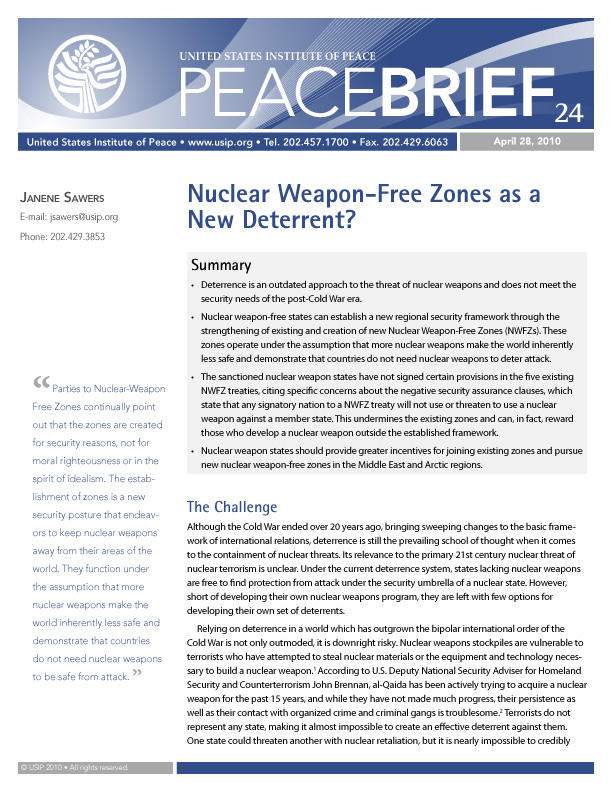Nuclear Weapon-Free Zones as a New Deterrent?
Nuclear weapon-free states can establish a new regional security framework through the strengthening of existing and creation of new Nuclear Weapon-Free Zones (NWFZs). These zones operate under the assumption that more nuclear weapons make the world inherently less safe and demonstrate that countries do not need nuclear weapons to deter attack.

Summary
- Deterrence is an outdated approach to the threat of nuclear weapons and does not meet the security needs of the post-Cold War era.
- Nuclear weapon-free states can establish a new regional security framework through the strengthening of existing and creation of new Nuclear Weapon-Free Zones (NWFZs). These zones operate under the assumption that more nuclear weapons make the world inherently less safe and demonstrate that countries do not need nuclear weapons to deter attack.
- The sanctioned nuclear weapon states have not signed certain provisions in the five existing NWFZ treaties, citing specific concerns about the negative security assurance clauses, which state that any signatory nation to a NWFZ treaty will not use or threaten to use a nuclear weapon against a member state. This undermines the existing zones and can, in fact, reward those who develop a nuclear weapon outside the established framework.
- Nuclear weapon states should provide greater incentives for joining existing zones and pursue new nuclear weapon-free zones in the Middle East and Arctic regions.
About This Brief
The United States Institute of Peace and the Elliott School of International Affairs at the George Washington University co-sponsored a conference in March 2010 on "The Contribution of Nuclear Weapon-Free Zones to the Global Nuclear Nonproliferation and Disarmament Regime." The conference explored numerous aspects of NWFZs including challenges to creating NWFZs, peaceful nuclear energy development within zones and coordination among the zones for global disarmament. To view the keynote address from the conference, given by Jennings Randolph Senior Visiting Scholar Amb. Jayantha Dhanapala, please visit http://www.usip.org/events/nuclear-weapon-free-zones. Janene Sawers, the author of this Peace Brief, is a senior program assistant with the Jennings Randolph Fellowship Program for International Peace.



